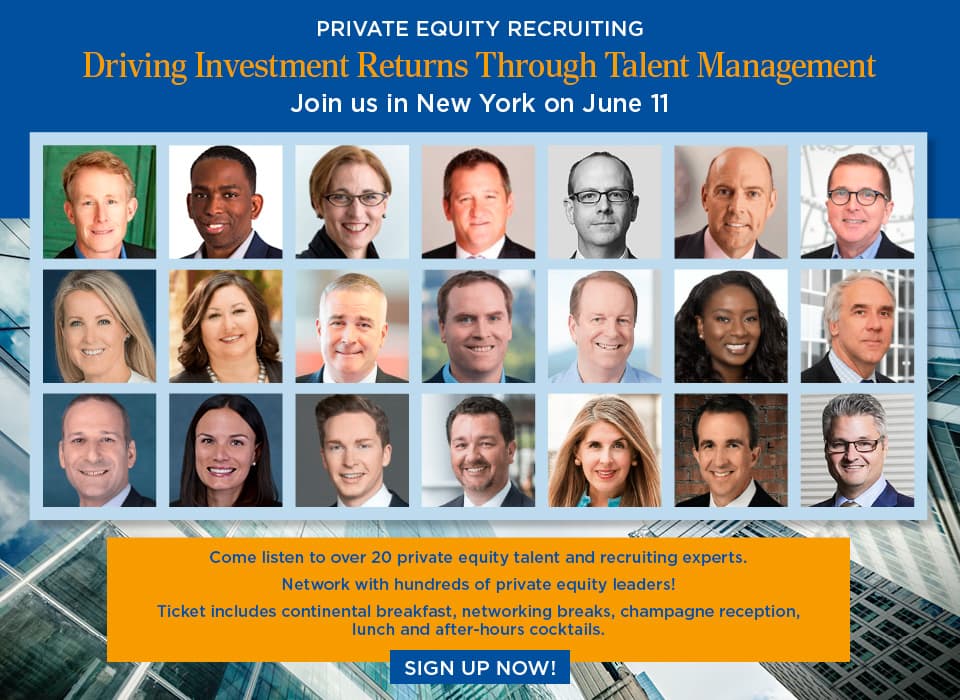The Recruiting Sector is Creating Durable Revenue Streams, with Higher Margins

February 13, 2020 – Korn Ferry will begin reporting a “KF Digital” segment that consolidates its compensation databases, leadership development platforms and sales training modules into one reporting disclosure, according to a new report by investment firm Kerrisdale Capital. By the next fiscal year, KF Digital should generate $400 million in revenue as a stand-alone unit. Other search firms are following suit as they turn to high margin platforms for growth and expansion. It is a topic Hunt Scanlon Media will address in the April issue of its newsletter ESR and in the Greenwich, Conn-based research company’s annual State of the Industry rankings report this spring.
Two aspects set Korn Ferry apart from others in the recruiting industry, however, and they are important leverage points: a 50-year heritage with a top-tier brand name and a rich set of proprietary data and applications built through its decades of experience, said Kerrisdale Capital. By working on more assignments than others, tracking offered and accepted salaries, and developing leadership teams for its clients, Korn Ferry created digital platforms backed by hard data and stress-tested over many years. The firm now owns compensation records for 20 million people and competency profiles on 1.2 million executives, among other mineable databases. These are the sorts of metrics and research & data platforms that private equity firms now give added multiples to when they invest in executive search firms. This will be a topic for the second installment of ‘Funding Growth & Expansion: How Search Firms Can Raise Capital and Leverage Liquidity,’ a Hunt Scanlon conference set for later this year in New York.
According to customers that Kerrisdale Capital has spoken to, products like Korn Ferry Pay (used by over 70 percent of the Fortune 500), Competency Profile Manager, KF Interview Architect and Executive Success Profiles have become industry standards. Until now, these products were co-mingled with the advisory business, giving investors little visibility into their size, margin profile or growth potential.
But this changes next quarter: Korn Ferry’s existing digital business ($275 million of revenue) will coalesce with three recent acquisitions ($125 million of revenue) to create a $400 million business by April. The digital business will offer everything from rewards databases to training and development, with exciting cross-selling potential as Korn Ferry leverages its global, blue-chip customer base. Management believes the business can grow revenue in the mid-to-high single digits with less cyclicality than executive staffing, making KF Digital more comparable to a data services business than a legacy recruiter, said the investment firm.
Mining Digital Data
Certainly a growing number of search firms are seeing the value in mining digital data to improve and grow their business. People analytics, for instance, is one area that is up and coming in a big way. The idea is to apply advanced computing capabilities to talent-related data to better predict employee behavior. “This people analytics approach has been adopted with the aim of simultaneously doing a better job of improving performance, acquiring top talent and reducing turnover,” said Richard Stein, chief growth officer at Options Group, in a recent report.
“In real-world experience too many big organizations are finding it difficult to reap the promised return from investment in people analytics,” he said. “The difficulty stems in large part from the inability of many organizations to translate data into practical action.”
According to many of the CHROs Options Group spoke with as it gathered market intelligence from a broad spectrum of organizations, the two most common complaints are that predictive results from people analytics models have not proven to be significantly better than traditional human-rich people-management; the other: people analytics teams are too often viewed inside their organizations as merely data analysts, detached from the realities of talent management and without authority to change behaviors.
“It’s not surprising that many executives would like to forget the whole thing and revert to traditional talent management,” said Mr. Stein. “But that would be a mistake. The firms that continue building people analytics capabilities appreciate how powerful the systematic harnessing of people data can be – once, that is, they’ve gone through the early teething pain.”
Sophisticated Tools
“Good data will never replace good judgment, but it is essential to informing it,” said former New York City mayor Michael Bloomberg not long ago. And while people analytics will never be a substitute for the application of human judgment to talent-management practice, said Mr. Stein, “it offers sophisticated tools for augmenting and improving that judgment.”
“Decades of research convincingly describe how relationships among employees – together with individual attributes – explain workplace performance,” said Mr. Stein. “All you need is to find patterns in the data. Simple.”
Among the most important recent breakthroughs in this area is the work of Paul Leonardi, professor of technology management at the University of California, and Noshir Contractor, professor of behavioral sciences at the Kellogg School of Management at Northwestern University. The two have spent thousands of hours appraising how companies can design networks in their organizations to create and share knowledge. Messrs. Leonardi and Contractor’s research demonstrates how data-intensive technologies, such as simulation and social-media tools, afford new ways to access, store and share information. They explore how the data developed by these technologies can change work routines and raise performance. Intriguingly, they’ve also shown how shifts in work and communication alter the nature of an organization’s expertise.
The digital motifs comprising relational analytics, in particular, are generally derived from logs, emails and the contents of everyday interoffice activity. “These can be used to construct a view of employee, team and organizational networks in which it is possible to pick out patterns,” Mr. Stein said. “Navigating these patterns depends on ensuring correlation to specific behaviors in relation to individual, team and organizational communications.”
Recent Acquisitions
As for Korn Ferry, its November acquisitions of Miller Heiman, AchieveForum and Strategy Execution also offer immediate accretion to next year’s financials. Since Korn Ferry can leverage existing customer relationships without the need for additional selling or marketing costs, it expects these acquisitions (and restructuring efforts within digital) to add $35 million to $40 million to its run-rate EBITDA and $0.40-$0.45 to EPS. Markets may have overlooked this upside since current fiscal third quarter guidance includes little near-term accretion, but that’s because an expensive shared services agreement remains in place until fiscal Q4 2020. As this contract lapses and Korn Ferry works through one-time severance costs, the upside for fiscal 2021 will become readily apparent, said Kerrisdale Capital.
 Building a Talent Function for the Future
Building a Talent Function for the Future
Societal shifts and the organizational response they require have boosted talent strategy, says a new report by Russell Reynold Associates. Increasingly, investments in talent have gone beyond improving the organization to providing benefits to customers and investors as well as an organization’s board.
Of the $400 million in new KF Digital revenue, roughly $100 million comes from rewards databases, $120 million from talent assessment, $120 million from learning development and $60 million from organizational strategy. While already substantial, Korn Ferry CEO Gary Burnison sees additional assets to monetize for its digital business over time. “So I believe that there is a substantial amount of energy in the organization around mining the data, packaging it with IP, and then trying to productize it,” he said in the fiscal Q1 2019 earnings call. Kerrisdale Capital said that organic investments like this, combined with potential additional acquisitions in fiscal 2021, mean that KF Digital will only become a larger part of the business mix over time.
RPO Business
Named a leader in both the Everest Re Global RPO survey and HRO Today ranking, Korn Ferry’s RPO segment has grown from less than 10 percent of Korn Ferry’s EBITDA to almost 25 percent by the end of 2020. This success mirrors an industry-wide shift towards RPO firms, with the industry expected to grow 20 to 30 percent over the next five years. Kerrisdale Capital said that “workforce churn is a daily challenge for internal HR departments: tenured floor managers join a competitor, data scientists find higher paid work elsewhere, and engineers take their talents on the road. And in the age of LinkedIn, dozens of job boards, and ever-increasing Google SEO complexity, a single HR or talent executive can no longer manage the dozens of software systems and processes required to replace this ever-present churn in the organization.”
Related: Korn Ferry to Acquire Three Companies in Leadership Development Area
Korn Ferry’s RPO business was built over many years to address these concerns. The Futurestep brand, now retired under the Korn Ferry banner, was first created in 1998 (plans were even made to create a tracking stock before the dot-com crash). Korn Ferry’s RPO segment includes both pure-RPO and professional services; the latter includes middle-management assignments too junior for the executive search segment. Combined, these two segments have grown at a 19 percent compound annual growth rate (CAGR) over the five years.
Korn Ferry Digital Business to Unlock Value
For the first time in the fiscal 2019, Korn Ferry disclosed a revenue figure for its proprietary digital products, hidden deep within its financial filings, said Kerrisdale Capital. The market appears to have ignored this disclosure for now, but that should change after Korn Ferry breaks digital out into an independent reporting segment in its upcoming quarterly press release. While the core staffing business exhibits business cyclicality – hiring grows over time but pauses during periods of uncertainty – Korn Ferry’s digital business can hold firm during periods of stress. Customers are loathe to cancel licenses for daily-use tools like compensation databases and talent assessment files. Newer products like software and training for sales representatives become profit-centers as they drive improved sales productivity. As uptake grows for these data-driven tools, Korn Ferry’s margins benefit from lower incremental costs: unlike the firm’s people-driven search and consulting practices, each new digital revenue dollar requires little new operating expense.
As of the fiscal 2019, digital products contributed over $250 million in revenue. But this figure will jump to $400 million, or 20 percent of overall fee revenue, after the November acquisition of three new digital training tools ($125 million of acquired revenue). The new portfolio consists of $100 million of revenue from rewards databases, $120 million for assessment and succession, $120 million in learning development/sales training, and $60 million for organizational strategy. Korn Ferry’s compensation database is a world-leader, with 20 million high-quality records for base salaries, incentive structures, and benefits programs. Its leadership assessment tools were built over 50 years, amassing 70 million leadership profiles used to assess employee skill-matching. This Big Data approach separates KF Digital from competitors, with customers frequently remarking on the robustness of these solutions.
Worth Attention
Korn Ferry’s RPO business has quietly compounded at 20 percent since fiscal 2015 with little variability and consistent new business wins, said Kerrisdale Capital. Even during 2016 when search reported flat or slightly negative quarters, the as-disclosed RPO segment – current disclosures lump contracted RPO with a more variable middle-market professional search services – grew nine to 13 percent through the same quarters. If we assume a roughly equal mix, as confirmed in the fiscal Q1 2020 investor presentation (53 percent pure-RPO/47 percent professional search), the pure-RPO segment probably grew 20 percent even in 2016. This product began as a niche business to supplement executive recruiting but has now become 10 percent of Korn Ferry’s revenue – certainly worth investors’ attention.
Related: 7 Predictions on How Recruiting Will be Different by 2025
Management is taking steps to highlight the recurring nature of its pure-RPO segment. After providing the mix breakdown at the end of last year, it’s spent time on quarterly calls highlighting the segment’s new business wins. The most recent quarter marked a seasonal record for new wins at $118 million of long-term RPO contracts. Kerrisdale Capital said that these are typically three-to-five-year contracts with retainer fees and recurring variable hiring requirements – minimum hiring goals are frequently given over the contracted timeframe – providing Korn Ferry with much higher visibility than a typical staffing assignment. As outsourcing contracts mature into their third and fourth years, companies find themselves ever more reliant on their RPO provider, aiding the renewal process. Of the $118 million in new wins, more than half came from existing clients.
RPO contracts are also an important component of Korn Ferry’s expansion into marquee and regional accounts (now 30 percent of revenue, with a target of 40 to 45 percent), as clients hire search for executive recruiting assignments, Korn Ferry digital for compensation and training programs, and the RPO for a 100-person regional staffing need, said Kerrisdale Capital. These larger enterprises are also more likely to invest during periods of economic contraction, fortifying the business as it builds a full product suite to serve the needs of corporations like Mars, CDK Global and Expedia.
Valuation and Conclusion
Korn Ferry’s valuation benefits from a very low starting point: it maddeningly trades at a discount not only to more cyclical peers like Robert Half, but also to slower-growth European-centric firms like Randstad and Manpower, said the investment firm. And Korn Ferry’s earnings are tangible: recurring capital requirements are low while full year working capital needs are balanced, leading to high free cash flow conversion. Korn Ferry’s even expenses share-based compensation (about $0.40/share), an increasingly rare and conservative reporting standard in a market usually willing to overlook its cost.
And this substantial fundamental upside is paired with an imminent revaluation catalyst: next quarter’s new digital disclosures and the 10 to 15 percent accretion expected by the April quarter. At the start of fiscal 2021 KF Digital becomes a $400 million revenue business, said the investment firm. The RPO segment, in turn, will grow into a $75 million EBITDA business, of which $40 million is contracted RPO (i.e. three to five year assignments with recurring projects) and $35 million is middle-market professional search. With the overall company projected to post $310 million of consolidated EBITDA in fiscal 2020, Digital and contracted RPO together become substantial contributors and should elevate Korn Ferry’s valuation ahead of traditional recruiting firms.
As the strength of Korn Ferry’s business units comes to light, Kerrisdale Capital said that shares can trade towards $60 to 65, more than 50 percent higher. The digital business can trade closer to digital consulting peers like HURN and FCN, the contracted RPO can earn a growth multiple, and improved results for core search and consulting can push Korn Ferry off of its trough multiple. At a share price of $65, Korn Ferry would trade at just 17x P/E – more consistent with its valuation over time.
In a market reaching daily highs every day, shares of Korn Ferry offer a unique opportunity: a cheap valuation with a clean balance sheet, new disclosures that re-categorize Korn Ferry from a niche staffing firm to a digital-led services business, and an expected 10 to 16 percent of EPS accretion after acquired products roll off their shared services agreement. A 50-year history has created a treasure trove of data: a compensation database with 20 million real-world precedents, leadership assessment tools incorporate 70 million prior assessments, and leading sales training toolkits and software. Above-market growth should return in the April 2020 fiscal year as Korn Ferry laps much easier comparisons and its contracted RPO and digital products become a greater portion of mix. “Say goodbye to the overlooked, under-covered KFY and say hello to the new Korn Ferry Digital,” said Kerrisdale Capital.
Related: Here’s How Predictive Analytics is Sharpening Recruiting Efforts
Contributed by Scott A. Scanlon, Editor-in-Chief; Dale M. Zupsansky, Managing Editor; and Stephen Sawicki, Managing Editor – Hunt Scanlon Media












